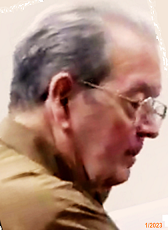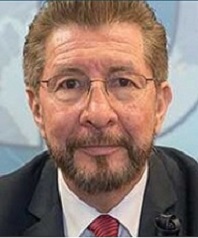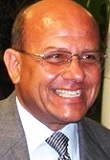 Resulta totalmente incomprensible para cualquier análisis racional que se esté divulgando la idea de que los países democráticos que apoyan a Ucrania en la defensa de su territorio invadido, puedan abandonarla o, en el mejor de los casos, reducir considerablemente los suministros para el esfuerzo bélico de su defensa.
Resulta totalmente incomprensible para cualquier análisis racional que se esté divulgando la idea de que los países democráticos que apoyan a Ucrania en la defensa de su territorio invadido, puedan abandonarla o, en el mejor de los casos, reducir considerablemente los suministros para el esfuerzo bélico de su defensa.
Estos rumores sólo sirven para alentar al invasor a persistir en su esfuerzo agresivo, prolongando la guerra precisamente en momentos en que se nota el agotamiento de su capacidad militar, el fracaso total de sus ofensivas y la gradual pérdida de los territorios que había ocupado. Sencillamente, la realidad es que Ucrania ha estado ganando la guerra desde principios de este año y sólo se requiere que se le preste la asistencia militar necesaria hasta agotar no sólo a las fuerzas enemigas sino el vapuleado prestigio del dictador Putin, responsable de llevar a su país a una costosa guerra que , además, le está costando centenares de miles de vidas de los mejores soldados de sus fuerzas armadas, sin contar buques de guerra hundidos, decenas de miles de misiles utilizados con muy pobres resultados estratégicos y más de un millar de tanques de guerra destruidos.
Es un hecho que Rusia está perdiendo la guerra y su capacidad para sostenerla se está agotando rápidamente. Incluso puede verse obligada a retirarse de Crimea ante la ofensiva ucraniana prevista en la primavera de 2024. En realidad, Crimea no es tan importante como un peón de la geopolítica rusa sino que es para Putin y para muchos ultranacionalistas rusos una cuestión de prestigio y orgullo nacional. Crimea es el símbolo de los grandes confines del imperio que Putin está tratando de reconstruir a sangre y fuego. Pero Crimea ya no es esencial para el dominio del Mar Negro, y controlar el Mar Negro significa muy poco cuando los rusos no pueden controlar el Bósforo.
- Hits: 1371

 The world is experiencing its “First Global War.” A global war is a conflict that impacts and involves everyone, albeit the armed confrontation is limited to confrontations in specific areas and between specific warring factions, in which the globalized world participates. It is a generalized conflict in which there is no neutrality, it is a conflagration from which none of the States is excluded. It started with Russia’s invasion of Ukraine and now it has two active fronts; Ukraine and the Gaza Strip.
The world is experiencing its “First Global War.” A global war is a conflict that impacts and involves everyone, albeit the armed confrontation is limited to confrontations in specific areas and between specific warring factions, in which the globalized world participates. It is a generalized conflict in which there is no neutrality, it is a conflagration from which none of the States is excluded. It started with Russia’s invasion of Ukraine and now it has two active fronts; Ukraine and the Gaza Strip. Escucho con demasiada frecuencia, entre cubanos y otros amigos, que “la política es algo sucio”. Que “todos los políticos son iguales de corruptos, de autoritarios, de mentirosos”. Incluso, que en las democracias “todos los partidos son iguales, no se puede votar por ninguno”.
Escucho con demasiada frecuencia, entre cubanos y otros amigos, que “la política es algo sucio”. Que “todos los políticos son iguales de corruptos, de autoritarios, de mentirosos”. Incluso, que en las democracias “todos los partidos son iguales, no se puede votar por ninguno”.